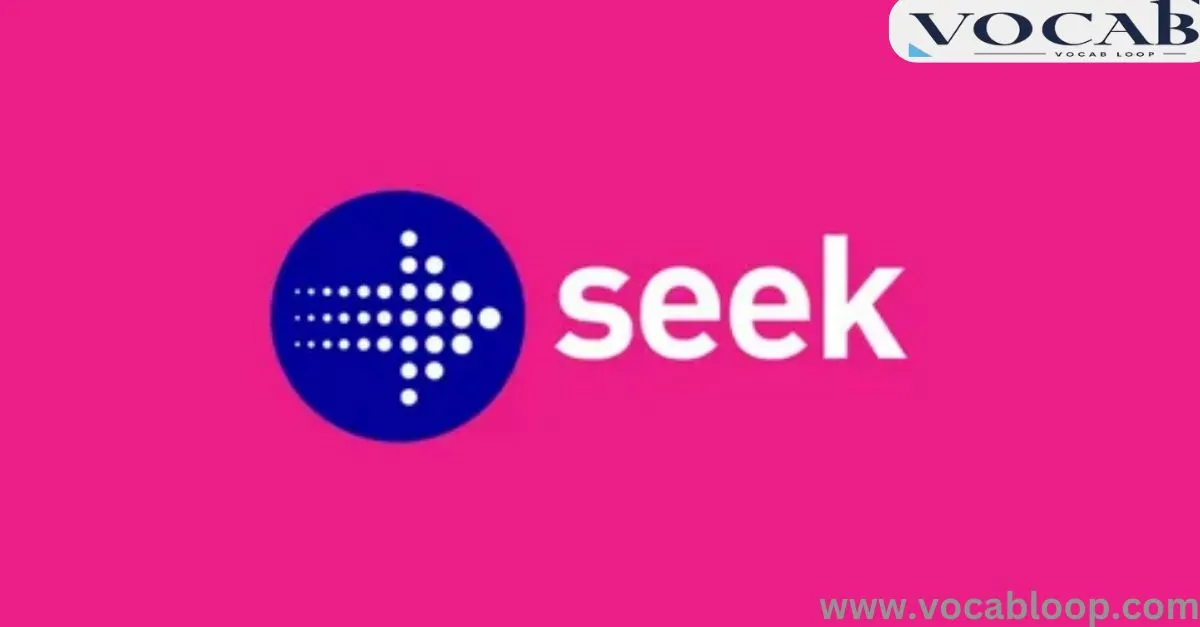When we think about the correct past tense of seek, many might question if it’s “sought” or “seeked.” Understanding the proper usage of English verbs is crucial to mastering the language, especially when it comes to irregular verbs like “seek.”
This article will dive into the grammar rules surrounding seek and sought, show examples of correct usage, and explain why “seeked” is not correct. Let’s get to the heart of English grammar and vocabulary, so you can confidently expand your language skills.
Is the Seek Word Correct?

Yes, the word seek is correct in English, and it’s a versatile verb with wide use across both formal and informal language. Generally, “seek” means to look for or attempt to find something. For example, you might say, “I seek new challenges,” or “She seeks guidance.”
The verb “seek” is often used when someone wants to discover information, find resources, or pursue new opportunities. In formal language, it’s particularly popular due to its dignified tone, which makes it well-suited to professional or academic contexts.
Definition
Seek means to look for, search, or try to obtain something. It’s a verb that expresses the act of striving toward an objective or pursuing a goal. In everyday usage, people often use it to describe the process of discovering or aiming for something meaningful.
Unlike the more casual word “look,” “seek” implies a sense of purpose or intent. According to grammar rules, “seek” is used in various contexts where a person actively searches for something specific, whether that’s information, answers, or assistance.
Meaning in the Present Tense
In the present tense, seek functions as a regular verb without any alterations. It’s commonly used in sentences where the subject is performing an action now or as a general truth.
For instance, “They seek improvement” shows that the people are currently pursuing betterment.
Using “seek” in the present makes the phrase sound professional, especially in formal sentences. This usage can also appear in informal conversations but is typically favored in written and professional English.
Past Tense of ‘Seek’ is ‘Sought’ — Here’s Why
The correct past tense of “seek” is “sought.” Unlike regular verbs that simply add “-ed” to form the past tense, “seek” is an irregular verb and therefore doesn’t follow the standard pattern.
Historically, “sought” evolved from older English forms, and it’s the only proper past tense accepted in modern grammar. Understanding this distinction is essential in mastering seek and sought to avoid errors in both spoken and written English.
Common Examples of ‘Sought’
To make things clearer, here are some common examples of “sought” in sentences:
- “She sought advice from her mentor.”
- “They sought shelter during the storm.”
- “He sought a new career path after his job ended.”
These examples illustrate how “sought” effectively conveys actions that happened in the past. Using “sought” correctly adds a level of sophistication to language, especially in formal contexts.
Why ‘Seeked’ is Incorrect

The word “seeked” is a common mistake, yet it’s grammatically incorrect. In English, not all verbs adopt the regular past tense structure. Because “seek” is an irregular verb.
The correct form changes entirely to “sought” rather than following the common “-ed” pattern. While “seeked” might seem logical, it’s an incorrect form that should be avoided in both professional and everyday English.
Quick Summary: Sought or Seeked
In summary, sought is the correct form for the past tense of seek. Using “seeked” is incorrect and doesn’t align with grammar rules for irregular verbs. Remember, sought is the past tense that signifies a completed action, while seek remains present.
Seek Parts of Speech
The word “seek” is primarily a verb in English. It expresses action, meaning it shows an individual or entity actively looking for something. “Seek” does not change form as a noun or adjective, so it’s uniquely a verb form.
Pronunciation of Seek
The word “seek” is pronounced as /siːk/, rhyming with words like “week” and “peek.” Its past tense “sought” has a different pronunciation: /sɔːt/, rhyming with “thought” and “bought.” Pronouncing these terms correctly can enhance your English fluency.
Present vs. Past: Understanding the Difference Between ‘Seek’ and ‘Sought’
Understanding the difference between seek and sought is simple when you remember that “seek” is for present actions and “sought” is for past actions.
For example, you say, “I seek opportunities” when discussing what you’re doing now, and “I sought opportunities” when referring to something you did before.
Table: Present vs. Past Forms of “Seek”
| Verb Form | Usage Example |
| Seek | “I seek knowledge.” |
| Sought | “They sought guidance.” |
This table illustrates how “seek” and “sought” work in different contexts to show time distinctions.
Which One is More Acceptable: Sought or Seeked

Between “sought” and “seeked,” only “sought” is correct. Although “seeked” might sound correct to some, it is an incorrect form and should not be used in standard English. Sticking to “sought” will help you avoid common mistakes.
Trick to Remember the Difference: Sought or Seeked
A quick way to remember that “sought” is correct is to think of “thought.” Both are irregular verbs that transform entirely in the past tense, making it easier to recall proper forms for other irregular verbs like seek.
Common Mistakes with ‘Seek’ and ‘Sought’ — How to Avoid Them
Mistake 1: Using “Seeked” Instead of “Sought”
Since “seeked” is incorrect, avoid using it by memorizing that “sought” is the only correct past tense of seek.
Mistake 2: Mixing Up Present and Past Forms
Sometimes, people confuse the two tenses, especially in conversation. To avoid this, pay attention to the context and ensure you’re choosing the correct tense.
Mistake 3: Overusing “Sought” in Casual Conversation
Because “sought” is quite formal, overusing it might sound odd in casual settings. Opt for simpler words like “looked for” when speaking informally.
Origins of Seek
The word “seek” has roots in Old English “sēcan,” which shares meanings with words like “search” and “pursue.” Over time, “sought” emerged as its past form, following unique grammar rules that reflect historical linguistic changes.
Synonyms of Seek
To expand your vocabulary, here’s a list of synonyms for seek:
- Pursue
- Search for
- Look for
- Investigate
- Explore
- Hunt for
- Quest for
- Inquire about
- Attempt to find
- Strive for
Use ‘Seek’ and ‘Sought’ in Sentences

Formal Situations
- The company seeks to expand its market presence in international territories.
- She sought guidance from her mentor before making the critical decision.
- We seek innovative solutions to reduce environmental impact.
- The researchers sought evidence to support their hypothesis.
- He seeks opportunities to collaborate with industry leaders.
- They sought to improve customer satisfaction through regular feedback.
- She seeks knowledge in diverse fields to broaden her expertise.
- Our team sought external resources to assist with the project.
- The board seeks a candidate with strong leadership skills for the new role.
- He sought medical advice to ensure a swift recovery.
Informal Conversations
- I’m seeking a good spot to grab a coffee around here.
- She sought some advice on where to travel next.
- We’re always seeking new ideas for our weekend plans.
- He sought help from his friend to fix the car.
- I’m seeking a fun place to hang out after work.
- She sought out tips to improve her fitness routine.
- He’s always seeking adventure wherever he goes.
- They sought somewhere quiet to study for the exam.
- I’m seeking a good book recommendation.
- She sought advice from friends on redecorating her apartment.
FAQs
What is the past tense of “seek”?
The correct past tense of seek is sought.
Why is “sought” the correct past tense of “seek”?
“Sought” follows the irregular verb rule for seek and is historically rooted in Old English.
Can “seek” have another past form?
No, “seek” only has “sought” as its past form.
How can I remember that “sought” is correct?
Think of “thought” as a similar irregular verb transformation.
Are “seek” and “search” the same?
Not exactly; “seek” is more formal, while “search” is commonly used for physical or online searches.
Conclusion
The past tense of seek is “sought,” a crucial distinction to master in English learning. By using “sought” instead of the incorrect “seeked,” you not only enhance your grammar but also demonstrate a deeper understanding of irregular verbs.
With this guide, you’re on your way to confidently using “seek” and “sought” and expanding your vocabulary in both formal and casual settings.

Alex Hormozi is a seasoned blogger at Vocab Loop, known for his deep insights into language, vocabulary, and grammar. With years of experience in writing, Alex shares practical tips and effective strategies to help readers improve their linguistic skills and enhance their writing abilities.

